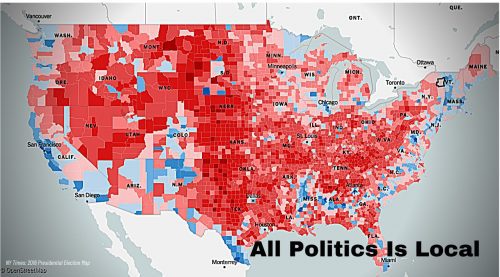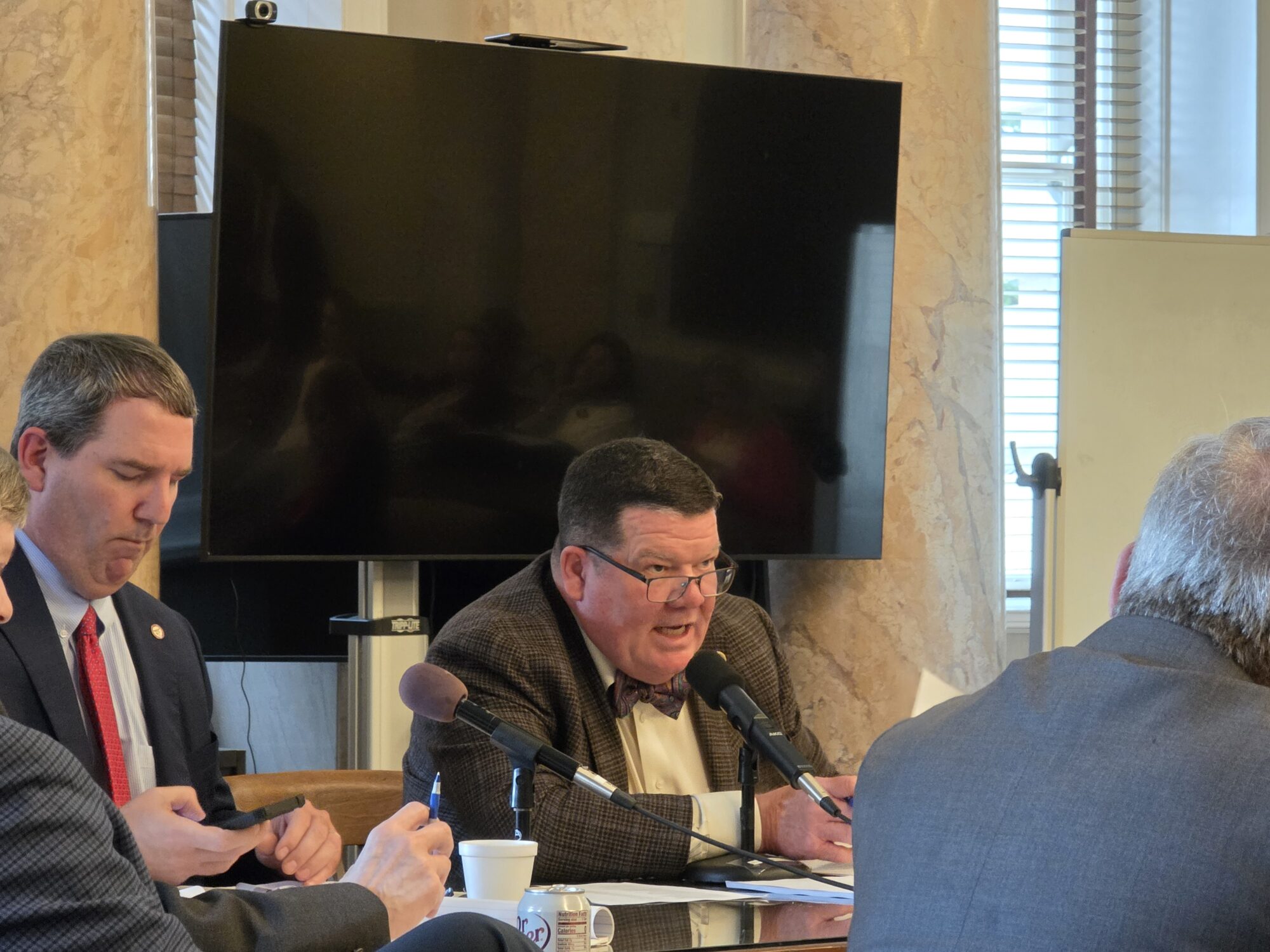
While Republicans lament the loss of the White House and desperately try to maintain control of the U.S. Senate pouring millions upon millions into the Georgia runoffs, there appears to be no real effort at work to address the true problem in the GOP… and it’s not Donald Trump.
Trump is an easy target because of his tweets and larger than life persona. But conservatives of all stripes, even those who dislike Trump for his personal demeanor or those who refused to deem him “sufficiently conservative” in 2016, would be hard pressed not to acknowledge the policy wins under this Administration including judicial appointments, school choice, criminal justice reform, a pre-COVID record breaking economy, and a period of unprecedented international peace.
The problem with the Republican Party is not Trump’s populism or conservative policies per se. The problem with the national Republican Party, and by extension their state machines, is that the GOP has largely ceded any attempt at winning in the inner cities and most densely populated areas across the country. The powers that be have been content to simply play electoral math every few years. Republicans can dominate a vast majority of the geographical areas but still lose the popular vote. The presidential electoral maps prove it, resulting in Joe Biden winning the national popular vote as well as flipping once solid red states handing him the Electoral College victory on Monday.

It is true that gains were made in U.S. House seats, potentially setting Republicans up for midterm election success. It is also true that Republicans gained or retained key seats in state legislative bodies that could provide some hope as redistricting begins in earnest next year. However, Republicans may never again win the popular vote for President (that’s not being dramatic) and hold a comfortable majority in both the Electoral College or the U.S. Senate unless the GOP invests in making inroads into the most populous cities and counties in America.
Republicans have for decades done a terrible job at reaching into cities, towns and counties to show how conservative policies equate to successful local governance. Terrible may not even be a strong enough word.
Here in Mississippi, there aren’t many true urban areas, but to the extent there are, the state’s GOP has radically underperformed there, too, just as they have in say California and elsewhere. Georgia can now be added to that list.
It’s been said that filling a pothole isn’t Republican or Democrat often to diminish and undermine the policy positions that differentiate the two, particularly in terms of fiscal ideologies. Yet, while some in the general public may not care how the pothole is fixed when they drive over it, most will care how it was paid for when their taxes go up or when a bureaucrat in a state or federal agency with an acronym they have never heard of stalls the infrastructure project over a rare frog species.
Democrats do a better job communicating through community outreach and emotional support programs that draw in prospective voters. While their streets may become bedrooms for the homeless and their government buildings are converted into soup kitchens for the perpetually unemployed due to their Green New Deals and “autonomous zones,” the left continues to get their votes out even though Democratic policies may not be helping those they claim to champion. Yet, Republicans on the whole have not done the work needed to prove that what they say they believe works for these voters.
For Republicans to be successful in future presidential elections and remain competitive in U.S. Senate elections, Step 1 is for the party to establish a national plan that proves conservatives care in a hands-on, deeply rooted way that has a physical presence willing to stand in the gap in these municipalities and counties long-term. Bringing it down to the local level, the state GOP must start making inroads into urban areas, and specifically with black voters, through community organizing, candidate recruitment, chamber of commerce participation, school involvement, and local government engagement. Put simply, Republicans must destigmatize being a Republican, dispelling the narrative the mainstream media and Democrats are desperate to sell.
Step 2 is for the Republican Party to get in the game with local elected officials. Democrats are consistently rallying their local officials and providing the opportunities to connect. Go to the National League of Cities conferences or other such venues where local elected officials meet to train, hear from state and federal leaders, and socialize. Democrats are on the ground, holding mass breakfasts and dinners with local elected officials. More Democrats seek to move up in these organizations than Republicans, leaving the groups’ operations and policy advocacy to the left, all while GOP officials complain about their lobbyists and national platforms.
More directly, Republicans must cultivate black and Latino candidates that will carry the conservative banner into their communities, not because of their race but because conservative principles work. This is especially true in states like Mississippi. That will be a real challenge for new Mississippi GOP Chairman Frank Bordeaux, but there is hope. People like John James in Michigan, Kim Klacik in Maryland, and Tim Scott in South Carolina are tangible examples of black mainstream Republicans that have had success getting their message across on the national stage.
Further, Republicans must understand that this effort will likely not happen overnight. Step 3 in this process is a long-term commitment to such community outreach and investment. Nothing else will do. The good news is that traditional Democrat audiences in the South are far more culturally conservative than the national “progressive” movements promoted by AOC, Kamala Harris and Bernie Sanders. Republicans should expect short-term pains for the greater good if the ultimate goal is to implement conservative policy from the ground up and combat the radical left’s rise within these most densely populated areas across the nation.
For too long Republicans have failed to compete and invest in what makes America’s republic unique – its people, at the local level. President Trump hit a nerve with many in 2016 when he spoke of the forgotten men and women in this land, stirring an emotional chord akin to a traveling tent revival preacher. He spoke into the very soul of those who are fed up with the left’s forced acceptance of progressive ideals that have led to more than a fleeting flirtation with socialism. Republicans must now hone that message, tweak it and repackage it in a manner that is less about one man’s quest and more about the greatness of America’s exceptionalism built on the backs of those who value freedom, liberty, faith and family above all else.
It’s time the Republican Party got back to its roots in our local communities, showing that conservative policies do work, that conservatives do care, that capitalism isn’t the enemy, that Republicans haven’t given up on America’s cities and towns, and that Republican values and principles are far more unifying, freeing and sane than the leftists now in control of the Democratic Party.
In Mississippi, that begins right now. Great gains were made in 2017 to win Democratic strongholds in mayoral and council seats across the state. More Republicans now hold local office than ever in the state’s history. It would be easy to coast now that Mississippi has all 8 statewide elected officials as Republicans, Republican supermajorities in both chambers of the state Legislature, and Republican majorities on both state regional commissions. But Democrats remain competitive on the local level in many municipalities and counties, just like in California and New York. Party matters in terms of principles, even in our cities and towns. Republicans must not cede these areas, even in Mississippi, less it, too, become a battleground, giving solace to the left’s radicalism brought to you courtesy of a caring, compassionate Democratic Party.











